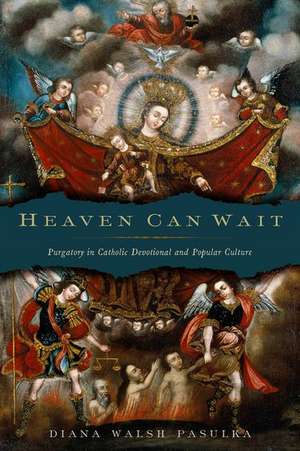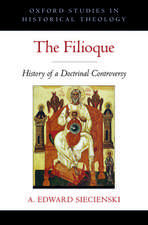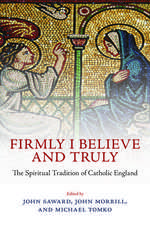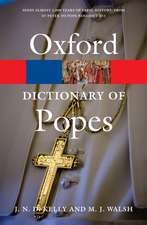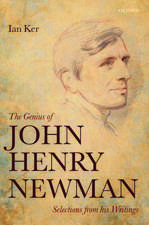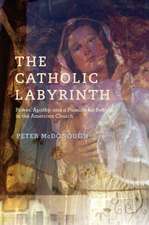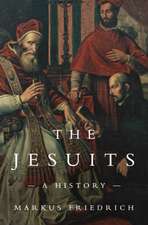Heaven Can Wait: Purgatory in Catholic Devotional and Popular Culture
Autor Diana Walsh Pasulkaen Limba Engleză Hardback – 8 ian 2015
Preț: 307.13 lei
Preț vechi: 374.63 lei
-18% Nou
Puncte Express: 461
Preț estimativ în valută:
58.78€ • 61.14$ • 48.52£
58.78€ • 61.14$ • 48.52£
Carte tipărită la comandă
Livrare economică 03-09 aprilie
Livrare express 07-13 martie pentru 100.54 lei
Preluare comenzi: 021 569.72.76
Specificații
ISBN-13: 9780195382020
ISBN-10: 0195382021
Pagini: 224
Dimensiuni: 165 x 242 x 20 mm
Greutate: 0.46 kg
Editura: Oxford University Press
Colecția OUP USA
Locul publicării:New York, United States
ISBN-10: 0195382021
Pagini: 224
Dimensiuni: 165 x 242 x 20 mm
Greutate: 0.46 kg
Editura: Oxford University Press
Colecția OUP USA
Locul publicării:New York, United States
Recenzii
Purgatory is one of those key devotional topics that everyone in the Catholic world knows about, but almost no one knows how to talk about. Diana Walsh Pasulka knows how to talk about it: historically, sympathetically, and critically. What she gives us here is an eloquent history of purgatory that is sensitive to both the lived, often eccentric, religious and visionary experiences of the believers and the wider public debates and institutional politics that have defined and disciplined the official doctrine down through the centuries. It turns out that there is not one but many purgatories, and that these are even more interesting, and more eerie, than anyone imagined.
Purgatory is one of those powerful religious ideas that wont go away, even when Catholics refuse to believe in it or cant define it. Diana Pasulka presents a wonderfully clear, well-researched study that shows how purgatory mediates this world and the next, and has evolved from a medieval place to a modern process. The rigor of her historical, material, and ethnographic investigation is exemplary for the study of religion.
Heaven Can Wait is a lively exploration of the history of purgatory in Catholic doctrine and devotion. Pasulka covers a wide range of purgatory lore, from traditional to modernist, elite to popular, edifying to merely curious. Her major concern is the fate of purgatory in American Catholicism, and to that end she uncovers little-known material about the purgatory apostolates (featuring devotion to the holy souls) that have played an important part in Catholic life. Pasulka proves that purgatory is alive and well, having survived -- with significant adaptations -- the successive convulsions of early modern and modern Catholic life.
Purgatory is one of those powerful religious ideas that wont go away, even when Catholics refuse to believe in it or cant define it. Diana Pasulka presents a wonderfully clear, well-researched study that shows how purgatory mediates this world and the next, and has evolved from a medieval place to a modern process. The rigor of her historical, material, and ethnographic investigation is exemplary for the study of religion.
Heaven Can Wait is a lively exploration of the history of purgatory in Catholic doctrine and devotion. Pasulka covers a wide range of purgatory lore, from traditional to modernist, elite to popular, edifying to merely curious. Her major concern is the fate of purgatory in American Catholicism, and to that end she uncovers little-known material about the purgatory apostolates (featuring devotion to the holy souls) that have played an important part in Catholic life. Pasulka proves that purgatory is alive and well, having survived -- with significant adaptations -- the successive convulsions of early modern and modern Catholic life.
Notă biografică
Diana Walsh Pasulka earned her B.A. degree from the University of California at Davis, her M.A. from the Graduate Theological Union in Berkeley and her Ph.D. in Religious Studies from Syracuse University. She is an Associate Professor in the Department of Philosophy and Religion at the University of North Carolina, Wilmington, and has published on the subject of conceptions of the afterlife and Catholic history. She is the chair of the American Academy of Religion group Death and Dying.
